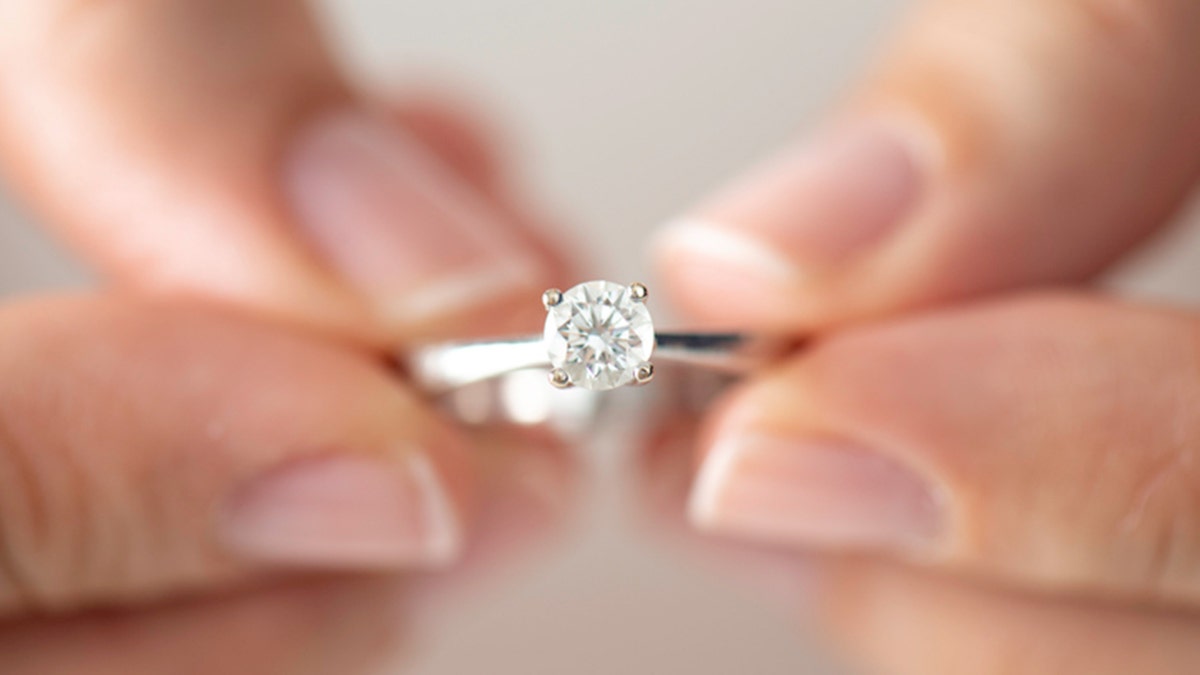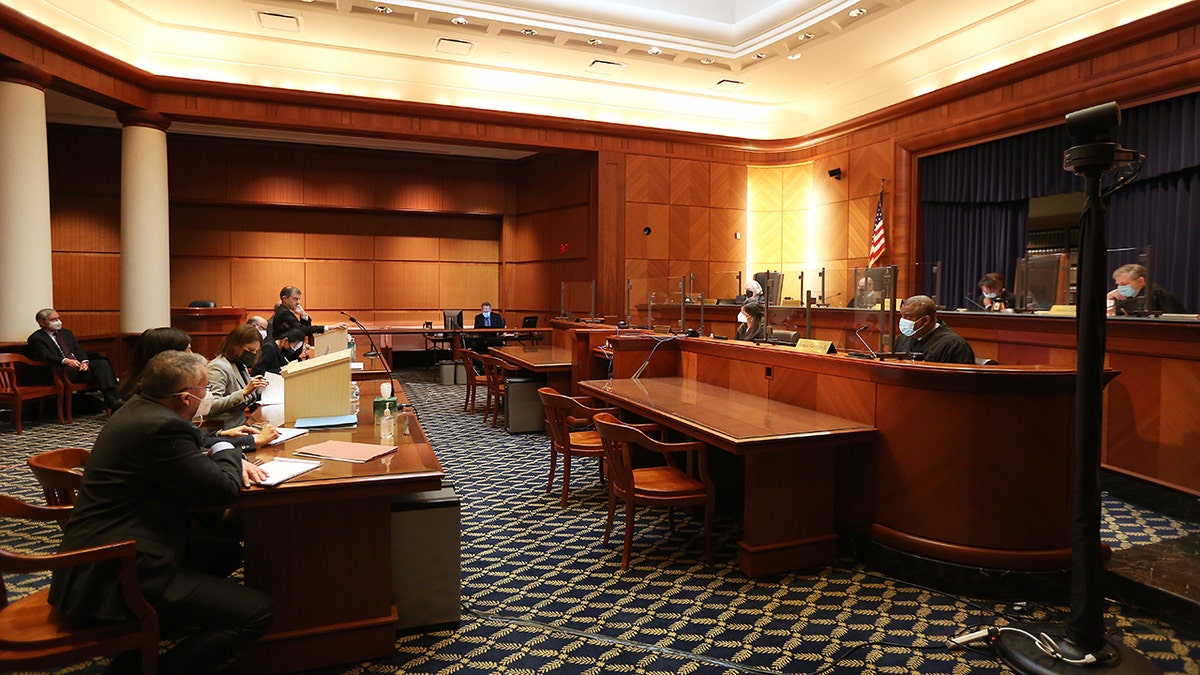The highest court in the state of Massachusetts just decided what to do with a $70,000 engagement ring at the center of a dispute between a former couple.
It overruled a six-decade-long state rule that pushed judges to identify who was to blame for the end of a relationship, instead stating that the engagement ring must be returned to the person who first purchased it.
The former couple, Bruce Johnson and Caroline Settino, first started dating in the summer of 2016. Johnson allegedly paid for extravagant gifts and vacations for Settino, according to court documents.
BRIDE CALLS OFF ENGAGEMENT, ATTENDS WEDDING DAYS LATER WITH HER FRIENDS AND FAMILY
In August 2017, Johnson asked Settino’s father for her hand in marriage and proposed with a $70,000 diamond engagement ring.
According to court filings, Johnson claimed Settino then became critical and unsupportive, not accompanying him to treatments for his prostate cancer, and berating him.
Johnson looked through Settino’s mobile phone and found messages from her to a man he did not know.

The engagement ring was valued at $70,000. (iStock)
“My Bruce is going to be in Connecticut for three days. I need some playtime,” Settino’s text read.
Johnson also discovered a voicemail where the same unidentified man called Settino “cupcake” and said that they didn’t see enough of each other.
After confronting Settino with the messages, Johnson ended their engagement. However, ownership of the $70,000 engagement ring was unclear. A legal battle ensued.
JENNIFER LOPEZ’S ENGAGEMENT RING FROM BEN AFFLECK PROMISED HE WAS ‘NOT GOING ANYWHERE’
While one trial judge concluded Settino was entitled to keep the ring, an appeals court found Johnson should get the ring.
The case ultimately landed before the Massachusetts Supreme Judicial Court in September of this year, which ruled that Johnson should keep the engagement ring.
When a wedding doesn’t happen, justices said in their ruling that the question of “who is at fault” should continue to govern ownership rights over engagement rings.
A Massachusetts ruling from nearly 70 years ago found that engagement rings are seen as conditional gifts and can be returned if there is a broken off engagement if that person is “without fault.”
The justices wrote in Friday’s ruling, “we now join the modern trend adopted by the majority of jurisdictions that have considered the issue and retire the concept of fault in this context.”

Attorney John Kappos, standing rear left, argues for the doctor in Boston on March 9, 2022. The Supreme Judicial Court hears oral arguments in Roger M. Kligler & Dr. Alan Steinbach vs. Maura Healey & Michael OKeefe. Dr. Roger Kligler, who has incurable metastatic prostate cancer, wants doctors to be able to prescribe lethal amounts of drugs to terminally ill patients with six months or less to live, without fear of prosecution. The states highest court on Wednesday weighed arguments in a Cape Cod doctors controversial right-to-die case, with justices questioning whether the times, law, and medicine had evolved to make it time to legalize medically assisted death and whether the decision should be left to the Legislature. (Photo by Pat Greenhouse/The Boston Globe via Getty Images) (Pat Greenhouse/The Boston Globe via Getty Images)
“Where, as here, the planned wedding does not ensue and the engagement is ended, the engagement ring must be returned to the donor regardless of fault,” the justices continued.
Stephanie Taverna Siden, the lawyer who represented Bruce Johnson, said she was “pleased” with the decision.
“We are very pleased with the court’s decision today. It is a well-reasoned, fair and just decision and moves Massachusetts law in the right direction,” Siden said to the Associated Press.
One of Settino’s lawyers, Nicholas Rosenberg, said they were disappointed with the outcome to the Associated Press, but respected the decision of the court to follow the majority rule of the rest of the states.
“We firmly believe that the notion of an engagement ring as a conditional gift is predicated on outdated notions and should no longer be a legal loophole in our otherwise well-established rule that a breach of a promise to marry is not an injury recognized by law,” Nicholas Rosenberg said.
CLICK HERE TO GET THE FOX NEWS APP
The Associated Press contributed to this report.
